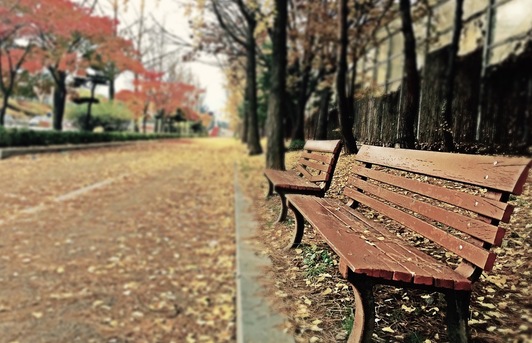Six police officers had clustered around the restaurant table just moments before.
Some had worn plainclothes, others their full uniform, bulletproof vest and all. I couldn’t stop glancing up at them. What is it about police uniforms that makes us want to stare?
I liked having them in the restaurant with us. I felt safe. Which was weird. No one was in danger in the restaurant that morning. Still, I felt distinctly safer and happier with them there.
As soon as they left though, the table was cleared, wiped, and reset. Then a young family was seated at the table.
This is going to sound crazy, but as I watched the parents and children file around the table and take the seats where the officers had just sat – where I wished they still sat – I felt sad.
A visceral awareness of the indifference of space gripped me.
Some had worn plainclothes, others their full uniform, bulletproof vest and all. I couldn’t stop glancing up at them. What is it about police uniforms that makes us want to stare?
I liked having them in the restaurant with us. I felt safe. Which was weird. No one was in danger in the restaurant that morning. Still, I felt distinctly safer and happier with them there.
As soon as they left though, the table was cleared, wiped, and reset. Then a young family was seated at the table.
This is going to sound crazy, but as I watched the parents and children file around the table and take the seats where the officers had just sat – where I wished they still sat – I felt sad.
A visceral awareness of the indifference of space gripped me.
The chair, the table, my house, your car, these are static places without feeling, depth, or even memory. Yet we, the physical, emotional, spiritual beings who occupy these spaces, live and experience and create memories in these places that neither care about nor remember us.
One moment you’re occupying a chair, the next it is occupied by someone else.
One day you’re living in your apartment, and the next, you’re dead and someone else is moving their own microwave and dining set into the place that’s already forgotten you.
Space is fickle.
It cheats on us without remorse, servicing any creature that wants to enter it. It’s tasteless and gluttonous, filling and refilling itself with anything at all – air if nothing else.
At first it seems like, as we move forward, the space behind us refills itself. It becomes as it was. It appears we were never there, and seems we’ve left nothing behind.
It’s kind of depressing. What’s the use? Do we have no impact? Are we doomed to never leave anything behind?!
But we can. And what we leave behind is not as fickle and tasteless as physical space.
It’s invisible and untouchable and stretches beyond the confines of time and space. It also has the power to impact change in a person’s life – something a mere chair would have difficulty claiming.
The thing we leave behind is our impact on each other.
A house may not remember us, but we remember each other. And those memories impact those who remember indefinitely.
In my heart and mind I store treasures left for me from people who no longer occupy physical space.
The insightful writings of CS Lewis and John Bunyan, for example, have been of great encouragement to me.
The life stories of David, Moses, Solomon, Samson, Paul, and Peter continue to guide and inspire me again and again. And they’ve all been absent from physical space for many centuries.
My grandma’s naughty giggle when she confessed she thought Micheal Landon was dreamy. It still makes me smile – not just because my grandma was super cute like that, but because she was honest with me. The way she loved to have me to her house right from childhood still makes me feel loved. I’ll still remember her gentle way – even when she was exhausted and in pain – and remind myself to be gentle with my children too.
The heart-to-hearts my friend and I had just months before she died continue to guide me. When I’m wishing for advice or someone to understand my struggles, I can recall things she said and feel as though she’s saying them again.
The example of my grandpa who smiled widely when he saw his grandchildren. He invested time in us – gave us rides in the yard with his tractor, assigned each of his eleven grandchildren their own Low German nickname. One year, he handmade each of us a piece of furniture out of wood. Benches, tables, cupboards, cradles for our dolls… and they were beautiful. He greeted us with glee too. His example reminds me that people do enjoy children, that I was loved, and that such things as smiles and nicknames impact a person for decades.
Space may be disloyal, and our bodies betray us. Even our mental health can walk out the door if it pleases.
I have always thought it cheesy and lame to say things like “I’ll be with you in spirit” or “Your memory lives on”. I thought it a crutch for people who couldn’t move on – who couldn’t let go of the past.
Thanks to the thought-provoking event of a family sitting down in a restaurant, I understand it differently.
Investing in each other is our space-defying superpower.
Building relationships, sharing ourselves with others, this is how we make the kind of impact that lasts beyond the confines of time and space.
Which is kind of scary for an introvert…
Okay, your turn. What do you think about any of that?
Do you find police uniforms irresistible?
Do you likewise resent the heartlessness of space?
What do you hope to leave behind?
Don't Miss a Post!Subscribe to get updates on my mom's cancer journey, coping with grief and addiciton, and general God moments |


